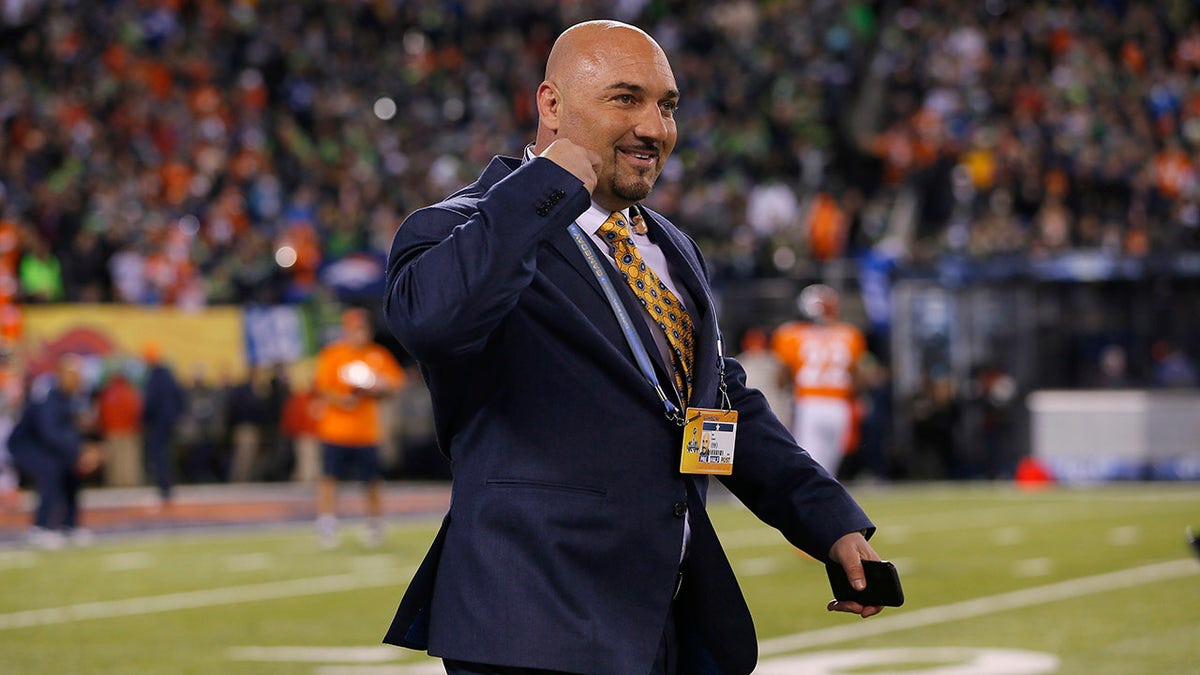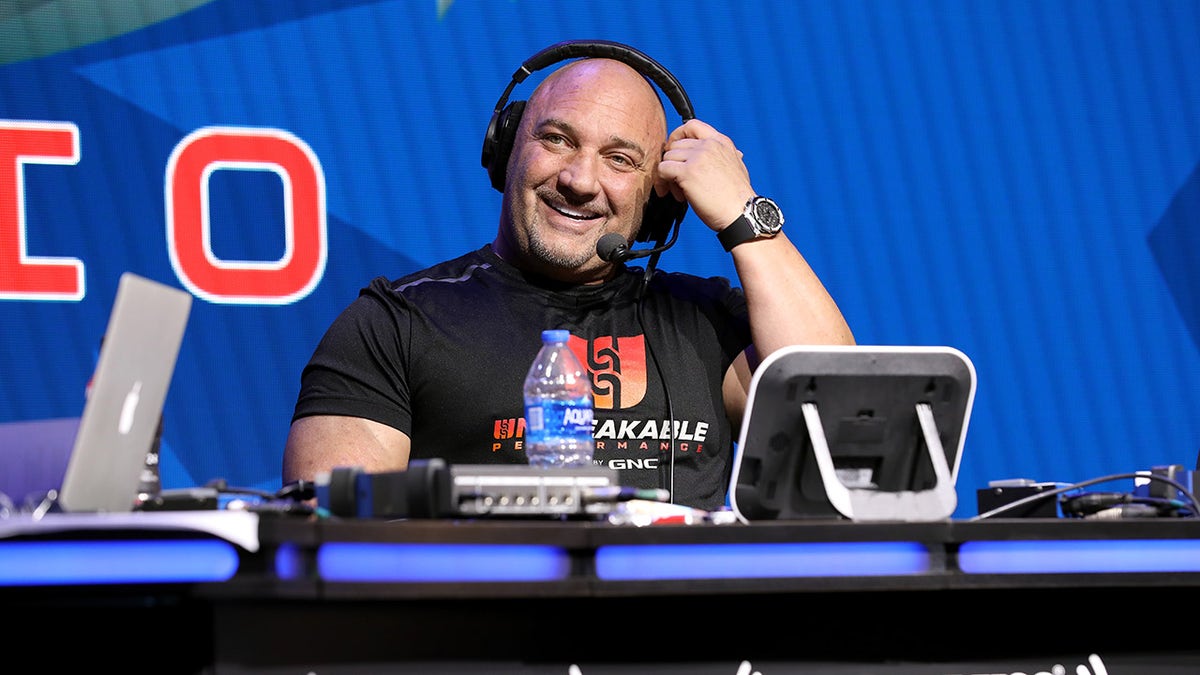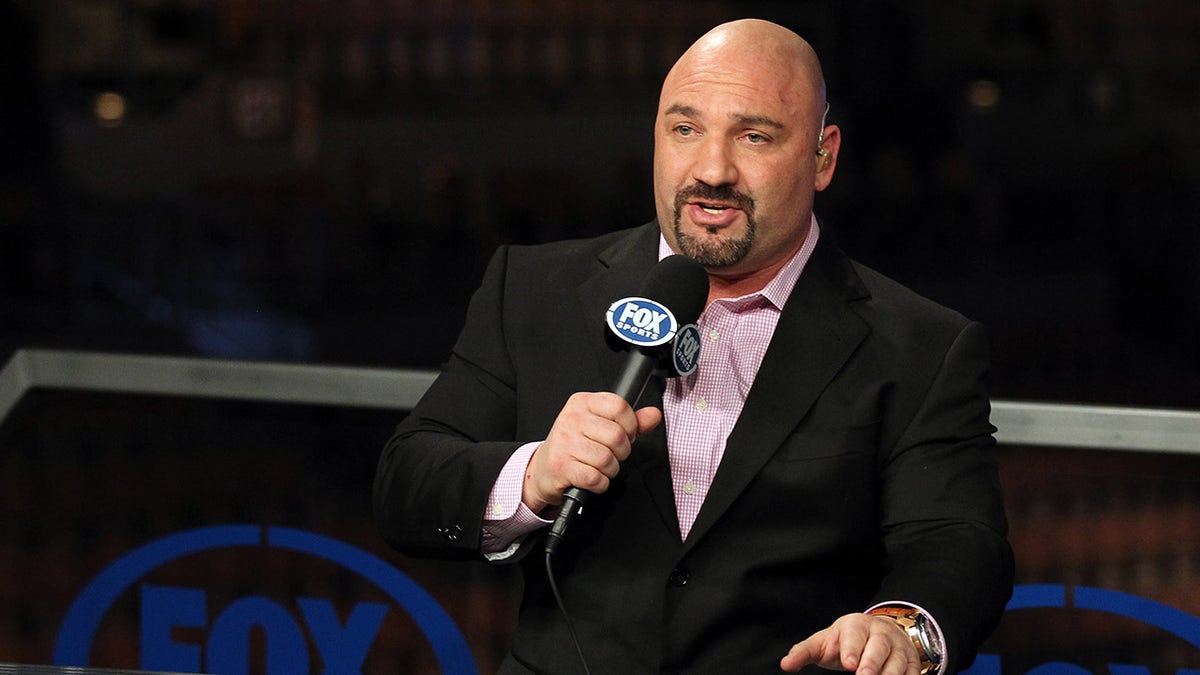Fox News Flash top sports headlines for November 3
Fox News Flash top sports headlines are here. Check out what's clicking on Foxnews.com.
Often, the person one would never think is battling depression actually is.
Such is the case with FOX NFL insider Jay Glazer, who revealed lifelong intense battles with his mental health on "OutKick the Morning" with Charly Arnolt on Friday.

Jay Glazer of Fox Sports is seen before the Seattle Seahawks take on the Denver Broncos during Super Bowl XLVIII at MetLife Stadium in East Rutherford, New Jersey, on Feb. 2, 2014. (Kevin C. Cox/Getty Images)
"It was a hard life," Glazer, 53, said. "It was every single day, and I know my life is great. I know that. But between my ears, it sucks. So, it’s every single day. It’s exhausting, and I didn’t sign up for it."
FOX SPORTS' JAY GLAZER WANTS TO TAKE 'SHAME AWAY' FROM MENTAL HEALTH: 'LEAN INTO SOMEBODY'
FOX Sports’ Jay Glazer Deals With Depression Daily
Glazer, who has been with FOX for two decades, has learned how to deal with his mental health issues and beat them most of the time with service to others and by discussing his mental health with friends. And he does not want to return to where he was.
"I used to handle my anxiety with Vicodin and alcohol then. Thank God I don’t anymore," he said.
Arnolt reacted as many who watch Glazer every week on "FOX NFL Sunday" probably will when hearing his story.
"Wow," she said simply at one point, as he held nothing back.

Jay Glazer speaks on SiriusXM in the lead-up to Super Bowl LIV in Miami on Jan. 29, 2020. (Cindy Ord/Getty Images for SiriusXM )
CLICK HERE FOR MORE SPORTS COVERAGE ON FOXNEWS.COM
Facing Rejection Early In His Career
"I felt so worthless for most of my life," he said. "Every time I got rejected for a job, I was OK with it because I felt that’s where I should be. I deserve to get rejected."
Rejections quickly gave way to his tremendous talent, however. He started covering the NFL at the New York Post in 1995 and started at CBS Sports in 1999 before moving to FOX in 2003.
"I’m just a dude who’s messed up who’s learned how to be good with his messed-up-ness," Glazer said. "And I use it to help other people."

Jay Glazer hosts the UFC post-fight show on Fuel TV after the UFC 143 event at Mandalay Bay Events Center in Las Vegas on Feb. 4, 2012. (Josh Hedges/Zuffa LLC/Zuffa LLC via Getty Images)
CLICK HERE TO GET THE FOX NEWS APP
Opening up to others has been Glazer’s best medicine, particularly through his own "Unbreakable" podcast. It shares the same title as a book authored by Glazer called "Unbreakable: How I Turned Depression and Anxiety Into Motivation, and You Can Too."
"The podcast allows me to be of service," he said. "That’s one of my pillars. The other thing is building a team, and the more I’ve opened up to people about this, the closer it’s gotten us. I use my depression as my superpower."









































